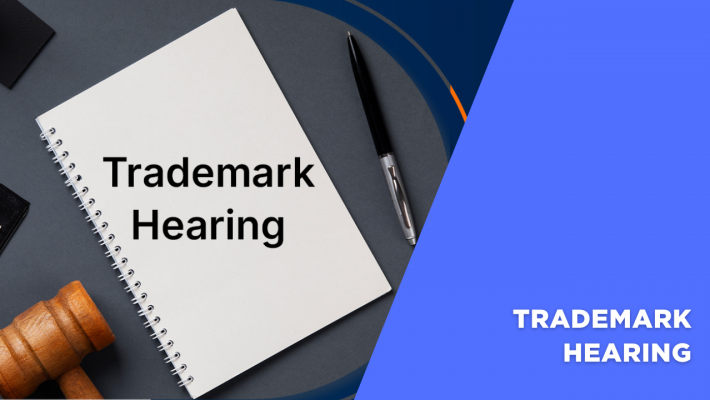Trademark Hearing
Get in Touch to Explore More

Trademark hearing in India
A trademark hearing in India is a process where a hearing officer from the Indian Trademark Office (ITO) or the Intellectual Property Appellate Board (IPAB) conducts an oral proceeding to hear and decide on disputes related to trademarks. This can include disputes over the registration, use, infringement, or cancellation of a trademark.
Trademark hearings are held when the register is not satisfied with the reply to the examination report, second, one party files an opposition to the registration of a trademark or when a cancellation action is filed against a registered trademark. The hearing is conducted in the presence of the parties involved, or their representatives and the hearing officer. The hearing officer may also call expert witnesses to provide evidence or testimony.
During the hearing, both parties have the opportunity to present their case, cross-examine witnesses, and submit evidence. The hearing officer then makes a decision based on the evidence presented and the applicable laws and regulations.
It is important to note that in India, the trademark hearing process is governed by the Trade Marks Act, 1999 and the rules and regulations issued thereunder. The Act also provides for an appeal process, in case a party is not satisfied with the decision of the hearing officer.
As a lawyer, my role would be to represent my client in the hearing, to prepare and present their case, to cross-examine witnesses, and to submit evidence. I would also advise my clients on the best legal strategy and the chances of success in the hearing.
In summary, a trademark hearing in India is a process where a hearing officer conducts an oral proceeding to hear and decide on disputes related to trademarks and it is governed by the Trade Marks Act, 1999 and the rules and regulations issued thereunder. The IPR lawyer’s role is to represent their client and present their case in front of the hearing officer.
Why is Trademark Hearing Required?
A hearing may be scheduled if:
1. The reply to examination report is not satisfactory
2. The examiner has doubts regarding the mark’s distinctiveness or similarity
3. There are conflicting marks or objections under the Trademark Act
4. The Registrar seeks clarification on the applicant’s response
Our Expert Assistance
At XLegal, our trademark professionals provide end-to-end support in preparing and attending trademark hearings, Our services include:
1. Drafting and submitting a strong written response
2. Preparing arguments and documentation for the hearing
3. Representation before the Trademark Registrar
4. Regular status tracking and updates till final decision
Need expert assistance? xLegal Team provides end-to-end support for this, Contact us at +91 9319661668, info@xlegal.in